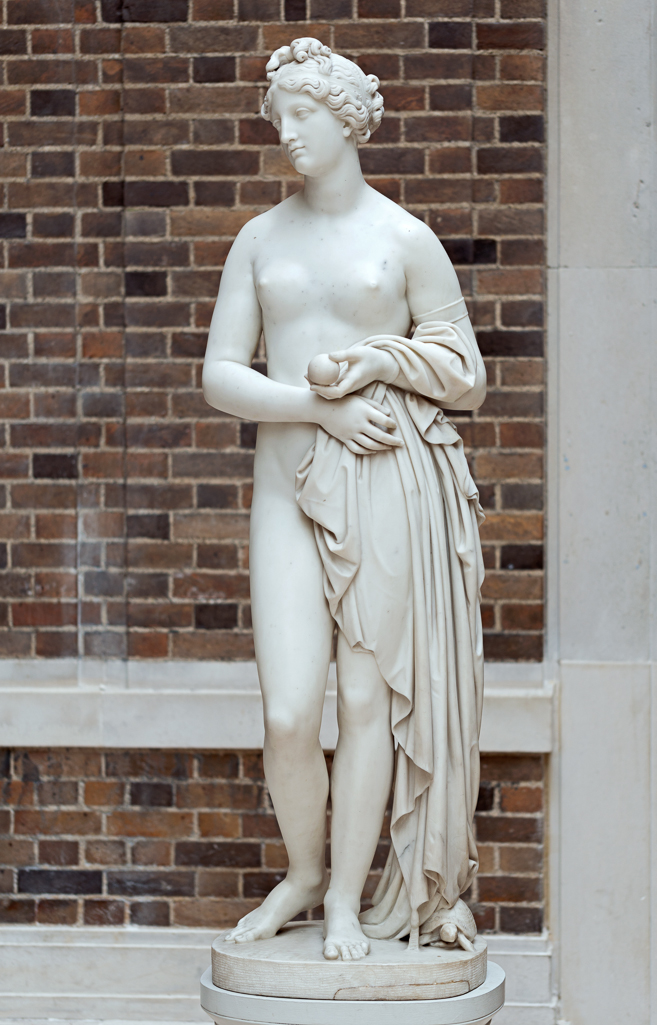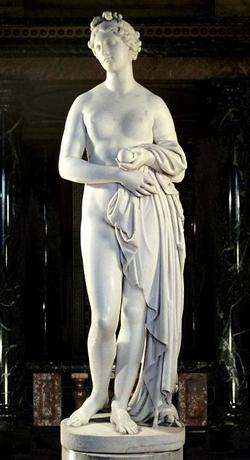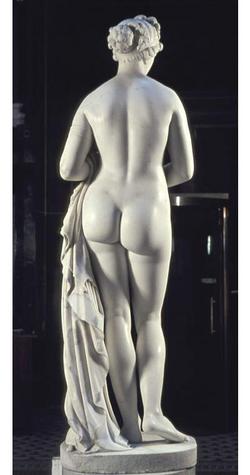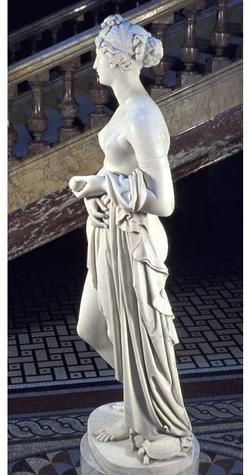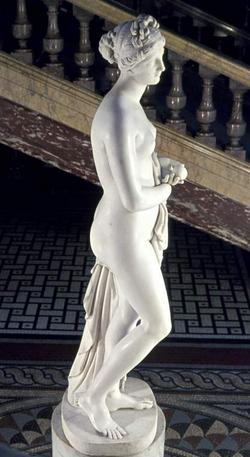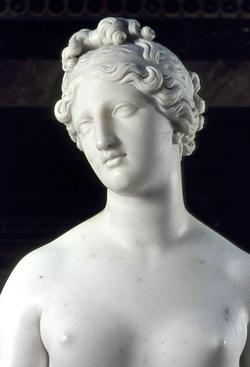Current Location: Founder's Entrance Hall Upper Landing
Titles
Venus Verticordia
Maker(s)
Sculptor:
Gibson, John
Commissioned:
Neeld, Joseph
Entities
Categories
Description
White marble. Venus stands with her head slightly turned to the left, her hair is dressed in Hellenic fashion, and her left knee forward. Over her left wrist is a mantle, and she holds the apple awarded by Paris. On the base, on the viewer's right, there is a tortoise.
Notes
History note: Joseph Neeld; Captain L.W. Neeld; Mrs J. Bourne (née Celia Kathleen Mary Neeld); Christie's, 22 September, 1966, Catalogue of The Grittleton Marbles...p. 14, lot 14; sold to Perkins (600 guineas).
Legal notes
Given by the Friends of the Fitzwilliam Museum
Measurements and weight
Height: 174 cm
Acquisition and important dates
Method of acquisition: Given
(1975-01-30)
by
The Friends of the Fitzwilliam Museum
Dating
19th Century, Mid
Circa
1833
CE
-
Circa
1838
CE
Note
Gibson recorded how the wealthy MP Joseph Neeld (1789–1856) had visited his studio in Rome several times before asking him to carve a ‘Venus, nude, but with some drapery modestly arranged without sacrificing too much of the form’. Inspired by Classical prototypes, Gibson showed the Roman goddess of love as an idealised female nude with elegant curves and soft modelling, holding the golden apple, awarded by Paris for her beauty. Although apples are often associated with carnal love, Gibson called his statue 'Venus Verticordia', or ‘the turner of men's hearts’ and later recalled how he had ‘endeavoured to give my Venus that spiritual elevation of character which results from purity and sweetness’. The Romans venerated Venus Verticordia on 1 April as a goddess of chastity. This accounts for the tortoise under her foot: since ancient times, the docile creature who keeps silent and never leaves its house had been a symbol of ‘ideal’ female domesticity. Phidias’ famous lost mid-5th-century BCE ivory and gold statue of Aphrodite at Elis (Greece) rested one foot on a tortoise, and this became a standard way for artists to show the chaste side of the love goddess’ complex character.
This sculpture was exhibited at the Royal Academy in 1839 (no. 1303). Gibson’s composition was so popular that he produced several other versions, including the highly controversial Tinted Venus for the International Exhibition of 1862 (now Walker Art Gallery, Liverpool), which he brightly painted to imitate the original appearance of many ancient statues.
School or Style
Neoclassical
People, subjects and objects depicted
Project
Materials used in production
White marble
Techniques used in production
Carving
: White marble, carved in the round
Inscription or legends present
- Text: OPVS IOAN IS GIBSON ROMÆ
- Location: On tortoise
- Method of creation: Incised
- Type: Signature
References and bibliographic entries
Identification numbers
Accession number: M.4-1975
Primary reference Number: 31066
External ID: CAM_CCF_M_4_1975
Sketchfab model
Stable URI
Audit data
Created: Saturday 6 August 2011
Updated: Monday 25 March 2024
Last processed: Tuesday 13 May 2025
Associated departments & institutions
Owner or interested party:
The Fitzwilliam Museum
Associated department:
Applied Arts
